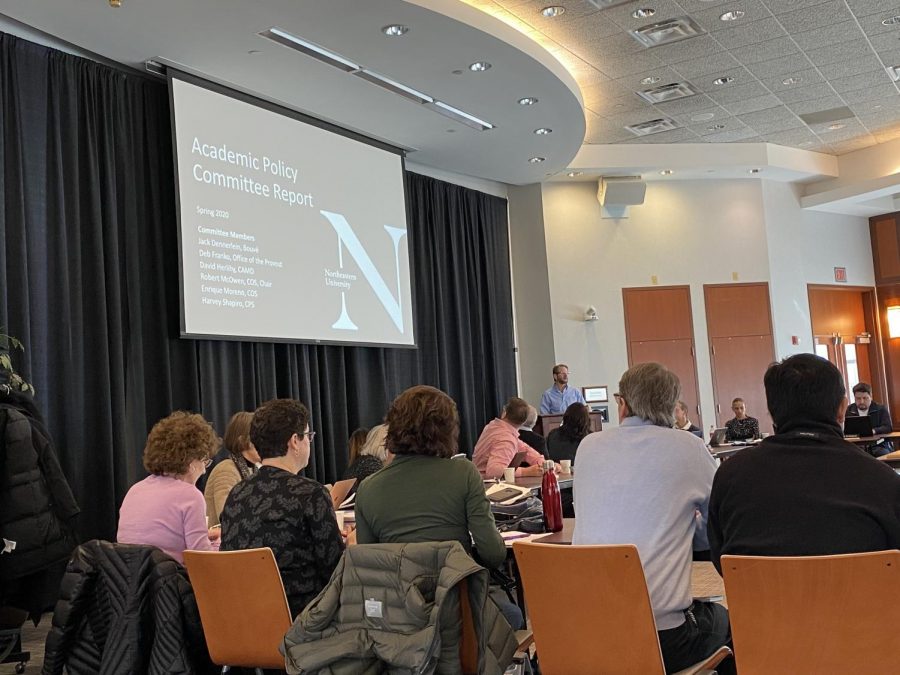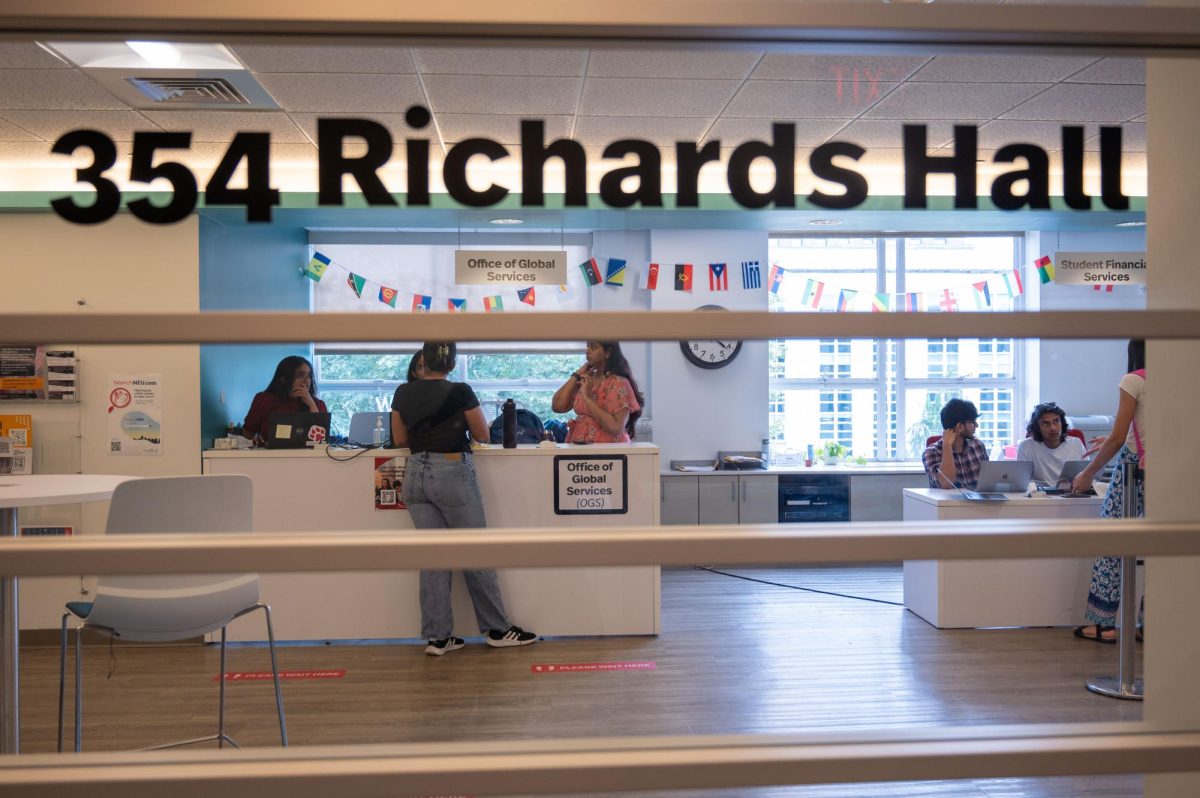Faculty senate passes resolution to amend TRACE evaluations
Northeastern’s faculty senate passed a resolution in which they recommended changing the Teacher Rating and Course Evaluation, or TRACE.
February 19, 2020
In their meeting Wednesday, Northeastern’s faculty senate passed a resolution in which they recommended changing the Teacher Rating and Course Evaluation, or TRACE. The proposed revisions include making the survey itself shorter and adding questions regarding diversity and inclusion.
The Academic Policy Committee began by presenting its report to the faculty senate. The committee looked at methods of Student Evaluation of Teaching, or SET, and made recommendations that could specifically apply to TRACE in order to improve the service.
The committee ultimately recommended three things: “the use of a midcourse SET or other form of student feedback during the semester,” “the use of peer classroom visits and review of course materials” and the creation of “an annual Teaching Portfolio for administrative purposes.”
Many faculty members argued strongly for the use of midterm faculty evaluations.
“From the student’s perspective, it shows that giving us feedback will directly impact them. TRACE [currently] will [only] impact the class after them. Midterm reviews will make an impact on the class right then,” said Assistant Dean of Assessment and Curriculum and Clinical Professor Michael Gonyeau.
Faculty also discussed the low response rates on TRACE from students. According to the committee’s report, only 65 percent of students answered TRACE in the Fall 2018 semester. 34 percent left it incomplete, and 1 percent declined to answer at all. The Spring 2019 semester had similar findings, with 60 percent of students answering TRACE, 38 percent leaving it incomplete and 1 percent declining to answer.
Faculty members discussed ways in which their respective schools encourage student participation in TRACE, including making it a competition within their department. Robert McOwen, the committee chair and professor of mathematics in the College of Science, explained how other schools fostered participation in teaching evaluations.
“The way [Harvard] improves their participation rate is that if students fill it out, they can see their grades one day early,” McOwen said.
In addition to the report done by the Academic Policy Committee, the Faculty Development Committee presented their report on TRACE to the faculty senate, providing more specific recommendations for how it should be changed. In addition to their recommendations, they presented a sample of their proposed revisions to TRACE.
This included deleting questions about the effectiveness of the class textbook and if the course followed objectives and adding three questions regarding diversity and inclusion. These questions were: “The instructor facilitated a respectful and inclusive learning environment,” “The instructor encouraged and supported students, regardless of their views or how they identify” and “Please expand on the instructor’s strengths and areas for improvement in facilitating inclusive learning.”
Another resolution about TRACE addressed in this meeting was not passed and tabled until the next meeting due to concerns over the wording. This resolution touched on whether or not TRACE scores should be calculated based on the average of all scores or should instead use the median or mode score. Faculty were concerned as to whether or not they should make this mandatory or a recommendation. The majority of the committee voiced the opinion that the wording should be changed to make it mandatory for all departments and schools.
Provost and Senior Vice President for Academic Affairs James Bean addressed these concerns before eventually deciding to move on with the rest of the meeting.
“I think the real question here is, does the senate need to tell every department they need to look at what they’re doing here and work to do it better,” Bean said.







